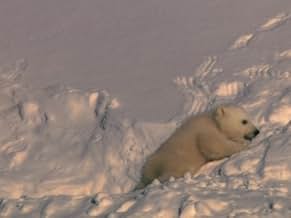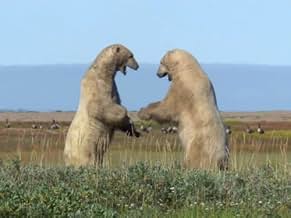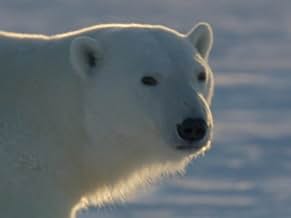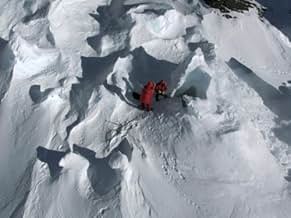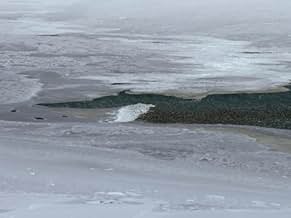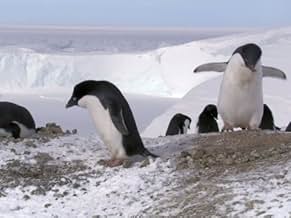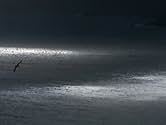Segui com'è la vita e l'ambiente sia nell'Artico che nell'Antartide.Segui com'è la vita e l'ambiente sia nell'Artico che nell'Antartide.Segui com'è la vita e l'ambiente sia nell'Artico che nell'Antartide.
- Vincitore di 4 Primetime Emmy
- 13 vittorie e 9 candidature totali
Sfoglia gli episodi
Riepilogo
Reviewers say 'Frozen Planet' is acclaimed for its breathtaking cinematography and David Attenborough's engaging narration. The series excels in detailing animal behavior and adaptation, offering both educational and emotional value. Behind-the-scenes segments enhance appreciation for the production team's efforts in extreme environments. However, some note repetitive content and a slight focus on human impact, though these are minor compared to the series' overall quality.
Recensioni in evidenza
Looking spritely as ever David Attenborough returned to the BBC with yet another brilliant documentary series, this time focusing on the seasons across the polar regions at either end of the earth. Spread over six parts, each season gets an episode followed by one on the lives of human in the regions and then an episode on how the regions have changed over time (and temperature). I'm not really a regular viewer of shows such as this, but I do come out for the big guns of the genre and the Attenborough/BBC names tend to be of the highest quality (plus the clip of the criminal penguin that was released as a promo convinced me to watch).
It is hard to fault Frozen Planet for what it does because it is technically impressive and stunningly filmed but yet has more than enough content and specifics to prevent the show being taken as just an excuse to show off your HD TV or have visual wallpaper for an hour (although having said that, it performs that task too and needs to be seen in HD). Although it covers a lot of ground, the show perfectly captures a sense of the extremes and of the remarkable forms of life that live in and around them, some we have seen before and some we have not and I found it as engaging to see familiar creatures as I did to learn of caterpillars that freeze completely solid only to thaw out and continue living when the ice retreats. As is to be expected, some of the presentation is a touch anthropomorphised but mostly the show is pretty honest about the chances of survival and is not afraid to show us the fates of creatures who are simply unlucky or misjudge their situation. Although one tries to watch it as a documentary it is hard not to feel something when you've just watched a baby bird survive a very rough landing on its first flight, only to be grabbed by a passing fox! The final two episodes are weaker by comparison because there is less of the animals and more of the human condition and bigger picture, but they are both fascinating. I came to the fifth episode not expecting much but the study of select communities did impress – not so much those that go there with money and technology, but those that hunt and live there; the shot of the man on a rope harvesting eggs on a cliff-face was a high point. The final episode just about avoids politics by mostly just showing things and leaving the rest to the viewer, but it was still an unusual part of the show compared to other series.
As always the filming is incredible and I do enjoy the little snippets at the end of each episode where we see how they were done and the frustrations and challenges of trying to get these great shots. The results are brilliant though, whether it is a camera dropped into a creature's burrowed hole, underwater shots of whales hunting as a pack or a hunt taken from far above in a helicopter; all of them are visually impressive and often breath-taking. The degree of access and intimacy is equally impressive and it is this that really makes the show as the viewer really feels part of an environment that the vast majority of us will never see or experience for ourselves. Over all this Attenborough's familiar tones inform and entertain – on top of his genre as ever but yet modest to the end.
Frozen Planet was a great series, really hard to fault as it delivers across the board for the vast majority of its run.
It is hard to fault Frozen Planet for what it does because it is technically impressive and stunningly filmed but yet has more than enough content and specifics to prevent the show being taken as just an excuse to show off your HD TV or have visual wallpaper for an hour (although having said that, it performs that task too and needs to be seen in HD). Although it covers a lot of ground, the show perfectly captures a sense of the extremes and of the remarkable forms of life that live in and around them, some we have seen before and some we have not and I found it as engaging to see familiar creatures as I did to learn of caterpillars that freeze completely solid only to thaw out and continue living when the ice retreats. As is to be expected, some of the presentation is a touch anthropomorphised but mostly the show is pretty honest about the chances of survival and is not afraid to show us the fates of creatures who are simply unlucky or misjudge their situation. Although one tries to watch it as a documentary it is hard not to feel something when you've just watched a baby bird survive a very rough landing on its first flight, only to be grabbed by a passing fox! The final two episodes are weaker by comparison because there is less of the animals and more of the human condition and bigger picture, but they are both fascinating. I came to the fifth episode not expecting much but the study of select communities did impress – not so much those that go there with money and technology, but those that hunt and live there; the shot of the man on a rope harvesting eggs on a cliff-face was a high point. The final episode just about avoids politics by mostly just showing things and leaving the rest to the viewer, but it was still an unusual part of the show compared to other series.
As always the filming is incredible and I do enjoy the little snippets at the end of each episode where we see how they were done and the frustrations and challenges of trying to get these great shots. The results are brilliant though, whether it is a camera dropped into a creature's burrowed hole, underwater shots of whales hunting as a pack or a hunt taken from far above in a helicopter; all of them are visually impressive and often breath-taking. The degree of access and intimacy is equally impressive and it is this that really makes the show as the viewer really feels part of an environment that the vast majority of us will never see or experience for ourselves. Over all this Attenborough's familiar tones inform and entertain – on top of his genre as ever but yet modest to the end.
Frozen Planet was a great series, really hard to fault as it delivers across the board for the vast majority of its run.
I was fortunate enough to get the opportunity to work on the promotional campaign as an editor at Discovery Channel in 2011-2012, and is still one of my favorite projects to date. The only challenge I faced was trying to choose which visuals to use in the 60/30 second commercials, because they were all breath taking.
From start to finish, the production value, imagery and breathtaking landscapes are captured with perfection in this documentary series. I thoroughly enjoyed watching this series when I had to (work), and then watched it again when I wanted to (at home)!
Over all, well done!
Though I don't particularly enjoy animal documentaries, the second run of the BBC's "Frozen Planet" was on the Guardians list of top TV of last year, so I needed to give it a try. Despite the fact it's not a narrative-based show I still decided to watch the initial run from 2011 first. The effort involved is admirable, but as a documentary I found it to be a little repetitive.
The poles at either side of our planet are among the most inhospitable areas to exist. There are, however, various ecosystems that do survive there, with the changing seasons providing them with enough respite to either feed, breed or migrate as required. Polar Bears, Seals, Penguins and Orcas are amongst those species' films by the documentary, that uses underwater filming and time lapse photography to get unbelievably close to the animals.
This is probably the BBC at it's finest. An altruistic environmental documentary, beautifully shot in high definition and with a David Attenborough voiceover that can only be described as Iconic. The amount of personal sacrifice that goes into making a series like this is truly inspiring, with the "Freeze Frame" sections at the end of each episode giving us an insight into the conditions endured, and perils risked in order to get the footage. The footage is worth it though and even without the educational aspect just looking at what they captured would be enough. The final episode of the series is a change of pace, and focuses on human interaction in the polar regions, with both native people who live and hunt there, exploration bases and mining operations.
This might be a drawback caused by watching all the episodes in just a few days, rather than spacing them out one a week, as it would have originally been released, but there is quite a bit of repetition in the series. Some of this is endemic, Animals essentially eat, procreate, and die so if it's not doing one of these things, it's doing the other. More than that though, some specific bits of the series, I'm thinking specifically of the Orca's iceberg destruction technique and various bits of the penguin walks are shown more than once.
It doesn't derail the series which, like all of them, is a unique and fascinating insight into these ecosystems.
The poles at either side of our planet are among the most inhospitable areas to exist. There are, however, various ecosystems that do survive there, with the changing seasons providing them with enough respite to either feed, breed or migrate as required. Polar Bears, Seals, Penguins and Orcas are amongst those species' films by the documentary, that uses underwater filming and time lapse photography to get unbelievably close to the animals.
This is probably the BBC at it's finest. An altruistic environmental documentary, beautifully shot in high definition and with a David Attenborough voiceover that can only be described as Iconic. The amount of personal sacrifice that goes into making a series like this is truly inspiring, with the "Freeze Frame" sections at the end of each episode giving us an insight into the conditions endured, and perils risked in order to get the footage. The footage is worth it though and even without the educational aspect just looking at what they captured would be enough. The final episode of the series is a change of pace, and focuses on human interaction in the polar regions, with both native people who live and hunt there, exploration bases and mining operations.
This might be a drawback caused by watching all the episodes in just a few days, rather than spacing them out one a week, as it would have originally been released, but there is quite a bit of repetition in the series. Some of this is endemic, Animals essentially eat, procreate, and die so if it's not doing one of these things, it's doing the other. More than that though, some specific bits of the series, I'm thinking specifically of the Orca's iceberg destruction technique and various bits of the penguin walks are shown more than once.
It doesn't derail the series which, like all of them, is a unique and fascinating insight into these ecosystems.
This is a wonderful documentary covering the Arctic and Antarctica sections of our planet. You see these two regions through 4 seasons, through the eyes of it's inhabitants (mammals, birds, fish and humans). It captures the beauty, harsh weather and life in all of its glory and challenges. We get to see a thorough glimpse in life of all key animals. The 4 season covers, love, birth, growth, survival, death. We also get to see the life of human beings who live around Arctic circle. It is a tough and simple life.
The show is very informative and very entertaining. Highly recommended. If you love nature or want to know more about this planet, check this out. I am now sifting through IMDb to find more such shows.
The show is very informative and very entertaining. Highly recommended. If you love nature or want to know more about this planet, check this out. I am now sifting through IMDb to find more such shows.
True genius. It makes standing in the poles, what' really seems like an exhilarating experience feel it's being done by yourself. With polar bears and penguins in the joy of spring, the summertime with less blues, autumn filled with the excitement of the mating season, the hard land that is winter, and then in the conclusion, you have people living there and you can see them. This is a classic series with brilliant moments all through it. It won 4 Emmys because it deserved them more than anything else in 2009. Madagascar- one of Attenborough's best works, the amazing documentary Ocean Giants and the classic Human Planet. Frozen Planet beat all them because some of the amazing stuff, as well as educational (not something I look for in Docos) and exciting (this one is exciting, animal-action-packed series) but also never filmed before. Nobody had filmed at Antarctic volcanoes or the Russian arctic before. Migrating eider ducks was new and never done before. That is the magic behind a classic series. Do yourself a favour if you haven't already. Watch all 7 parts. Won't waste your time. You could do an episode a day and be finished with it in a week. Come on. It won't wreck your life or anything. C'mon.
Lo sapevi?
- Quiz44 cinematographers to shoot the whole documentary.
- ConnessioniEdited into Universum: Eisige Welten - Das Reich der Kälte im Bann des Klimas (2017)
I più visti
Accedi per valutare e creare un elenco di titoli salvati per ottenere consigli personalizzati
- How many seasons does Frozen Planet have?Powered by Alexa
Dettagli
- Data di uscita
- Paesi di origine
- Sito ufficiale
- Lingue
- Celebre anche come
- David Attenborough's Frozen Planet
- Luoghi delle riprese
- Aziende produttrici
- Vedi altri crediti dell’azienda su IMDbPro
- Tempo di esecuzione1 ora
- Colore
- Mix di suoni
- Proporzioni
- 16:9 HD
Contribuisci a questa pagina
Suggerisci una modifica o aggiungi i contenuti mancanti

Divario superiore
What is the Brazilian Portuguese language plot outline for Frozen Planet (2011)?
Rispondi





